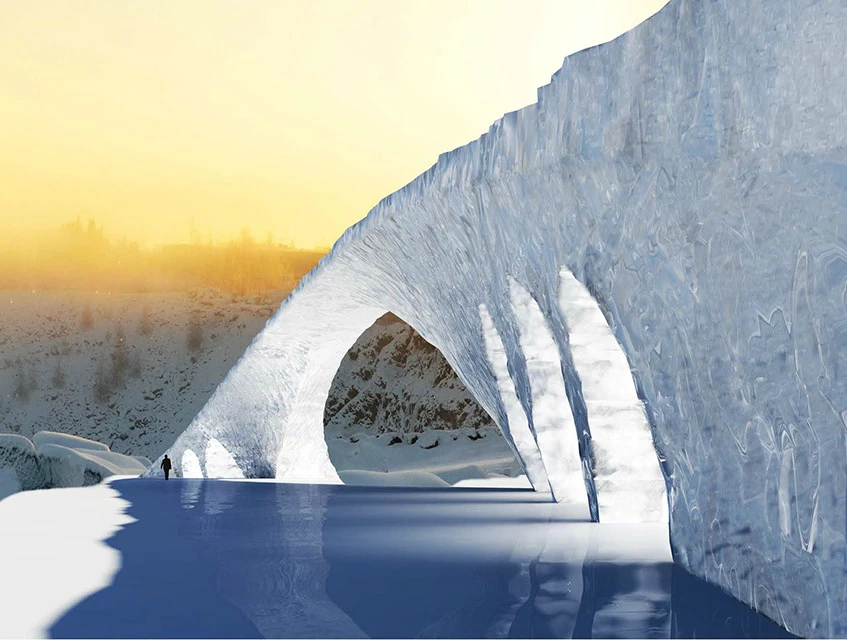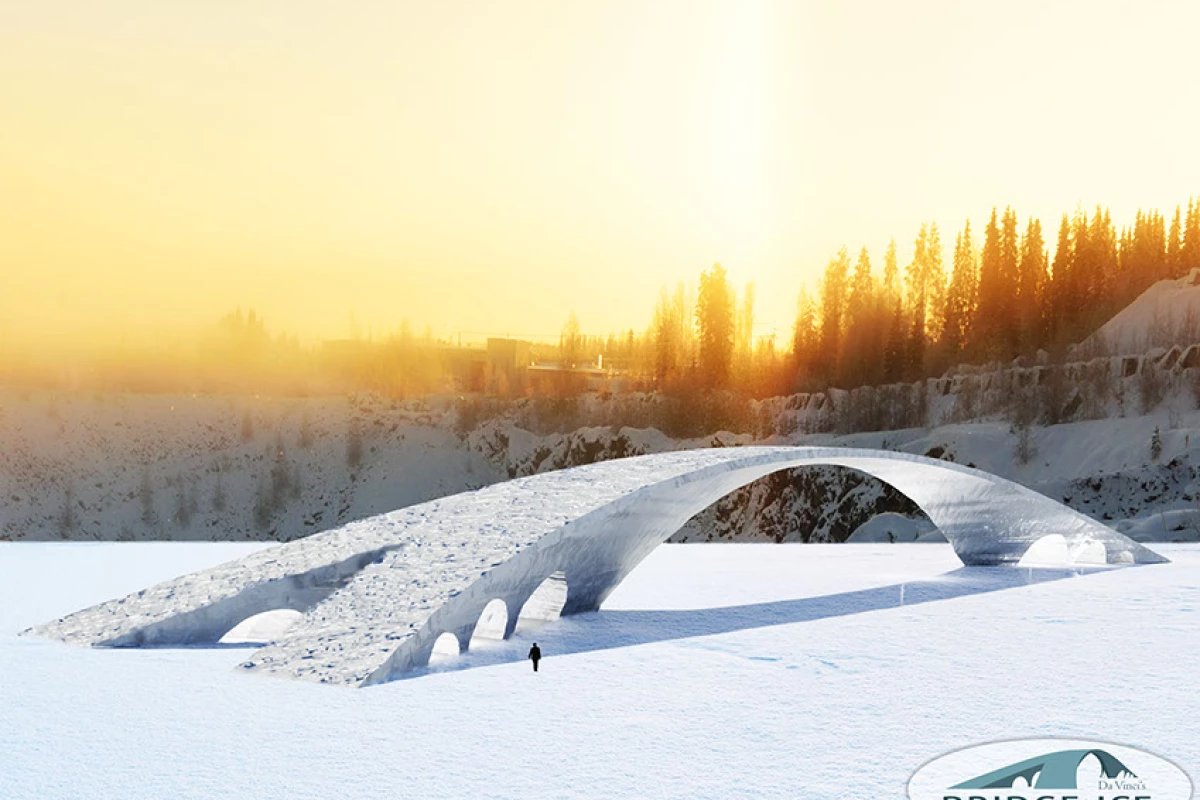At the turn of this year, students from Eindhoven University of Technology (TU/e) constructed a replica of Gaudi's Sagrada Familia in ice. Next up, they're turning their attention to a bridge designed by Leonardo da Vinci. If successfully completed, it will have the longest open span ever built from ice.
According to TU/e, the current record for the longest such span is held by the first project it ran as part of its Structural Ice program. The Pykrete Dome was built in 2014 and had a span of 30 m (98 ft). The aim for the da Vinci Bridge in Ice is for a span of 50 m (164 ft).
Pykrete is a mixture of ice reinforced with wood or paper fibers, used to construct the Structural Ice projects. It is said to be three times stronger than plain ice and a lot tougher. The overall aim of the projects is to show how pykrete can be used as a building material for temporary structures.
"Pykrete offers an easy way to build slim, safe and low-cost temporary structures," explains project leader and TU/e lecturer Arno Pronk. "For example, for temporary roads in Arctic regions, at events or for ice hotels."

Construction of the bridge, which was originally designed in 1502 for Istanbul but never actually built, will begin in December this year and it is expected to be completed by mid-February 2016. Around 100 students and volunteers will help to build the structure in Juuka, Finland, with the universities of Leuven, Aalto, Ghent, Bath and Edinburgh also getting involved.
The bridge will be constructed by spraying thin layers of water and snow onto an inflated mold. Once frozen, alternate layers of snow and pykrete will be added. The process will be carried out around the clock with builders working in shifts. Once complete, the bridge will be 100 m (328 ft) long in total and Pronk says it should comfortably hold the weight of a car.




